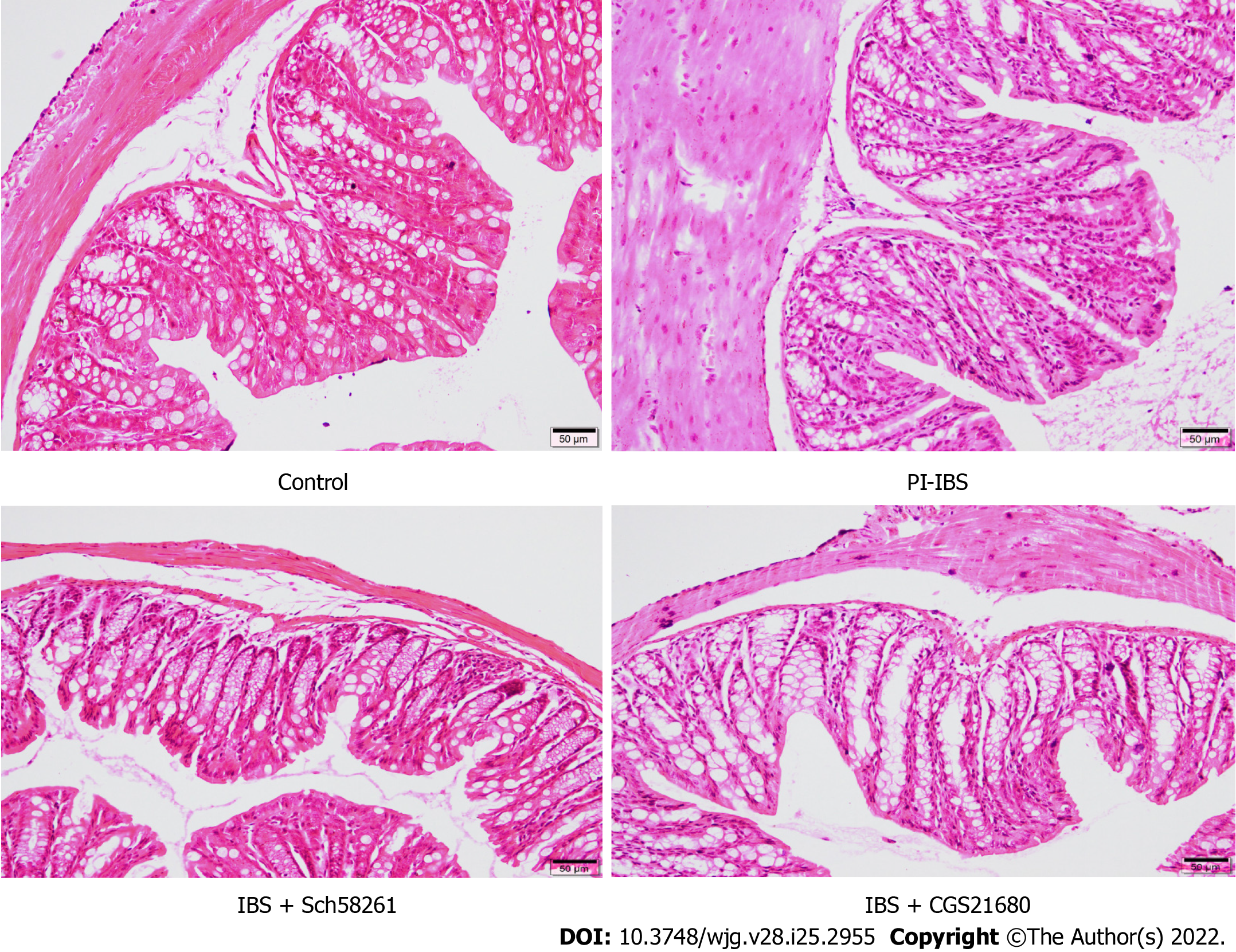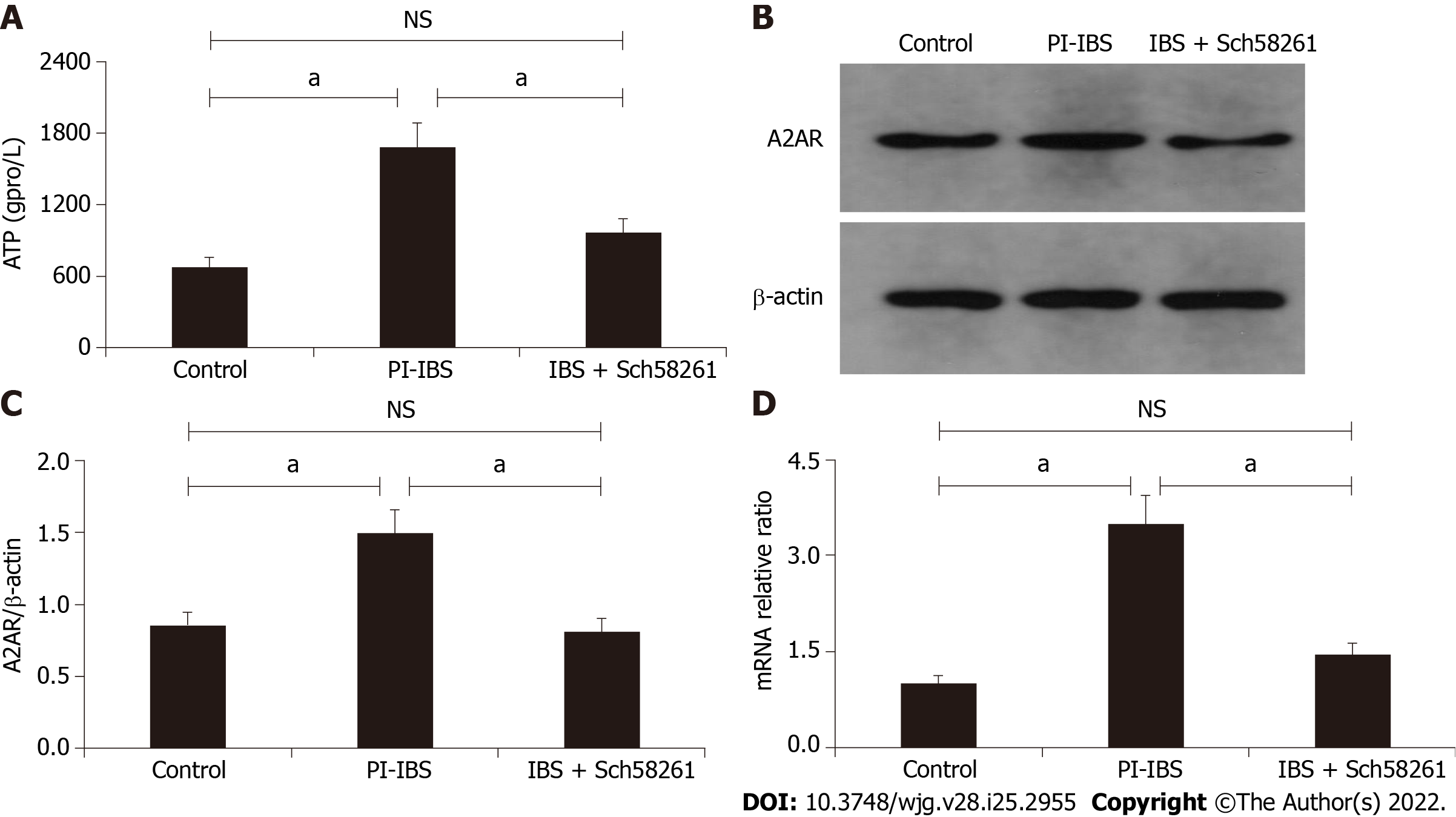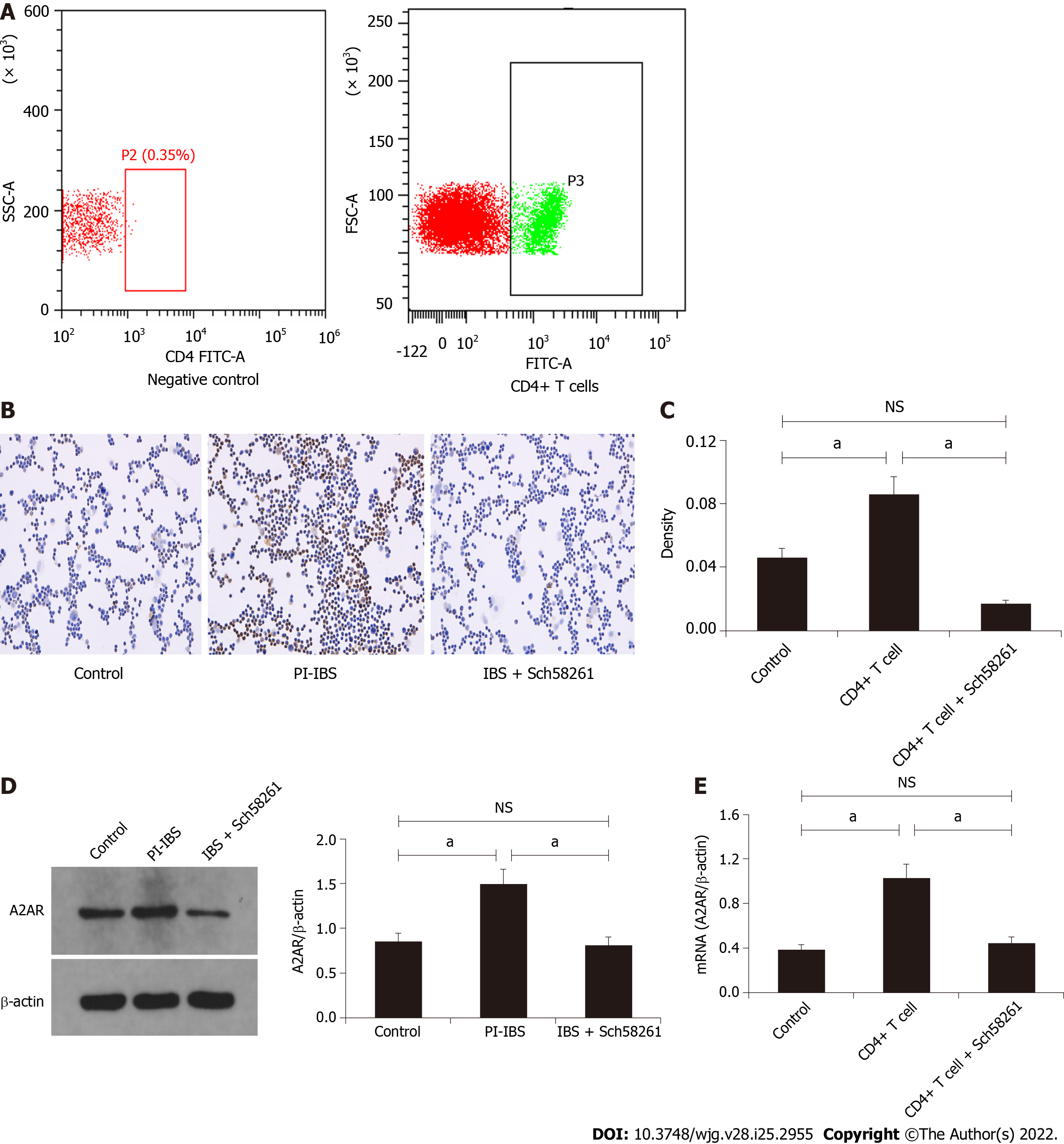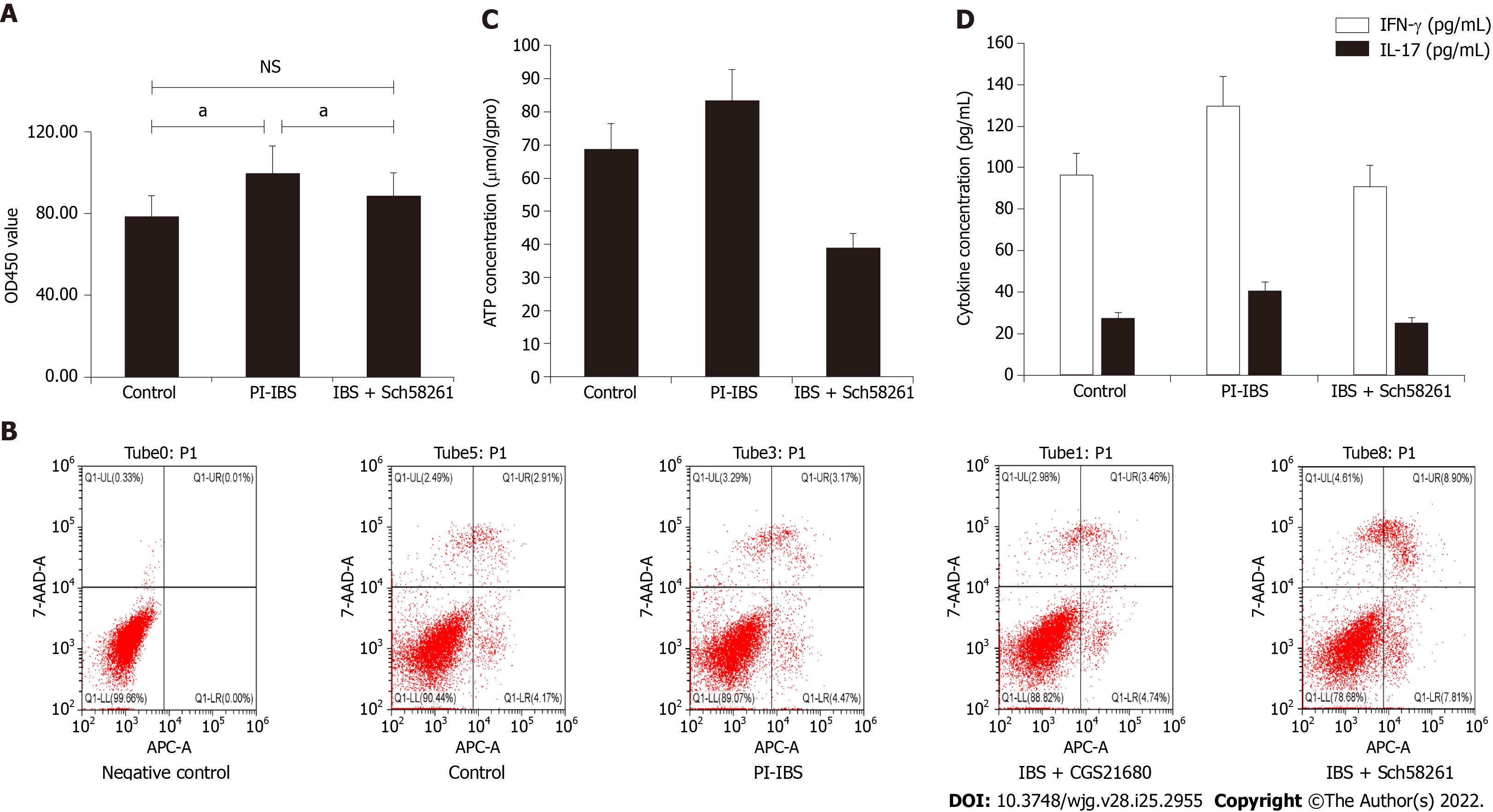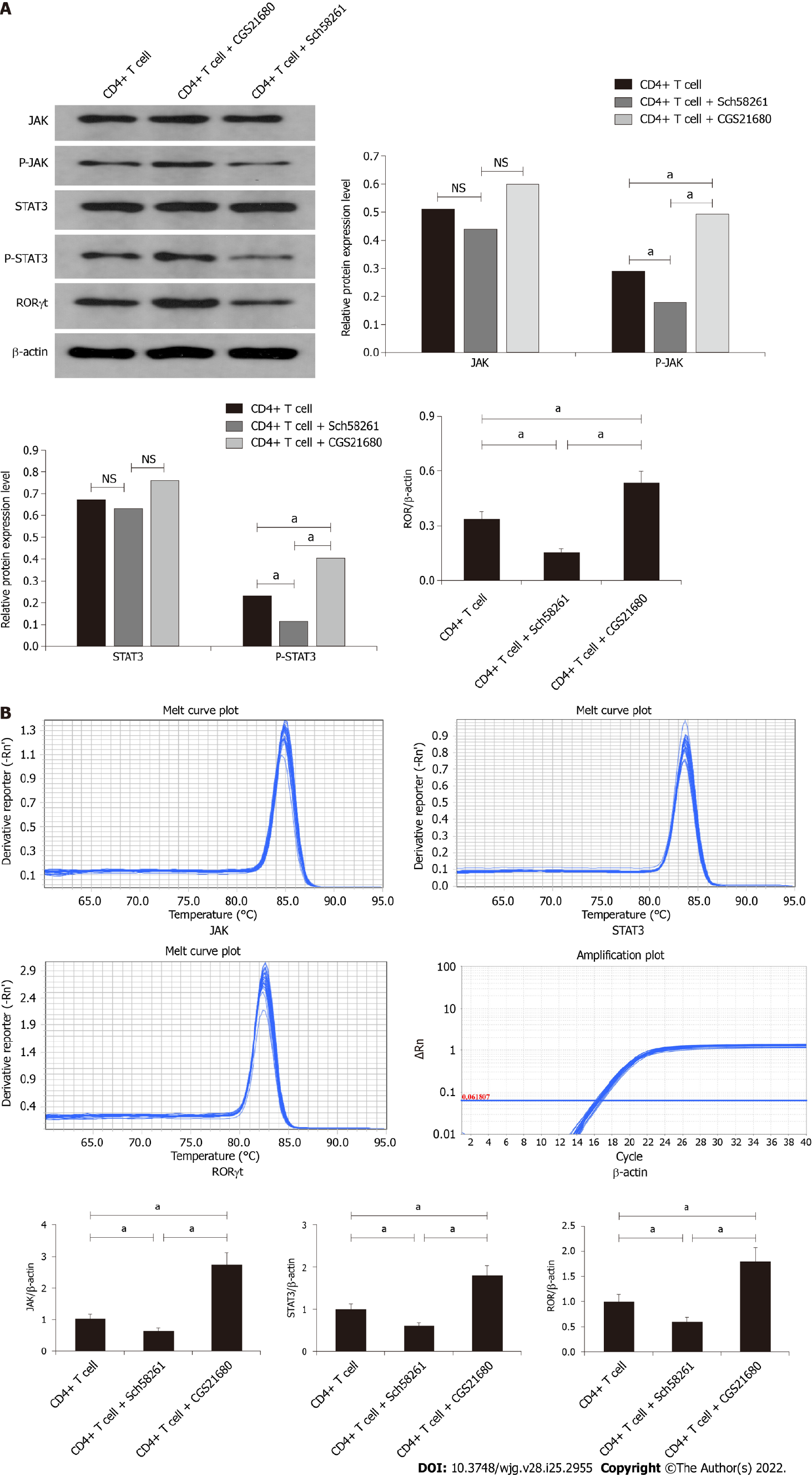Copyright
©The Author(s) 2022.
World J Gastroenterol. Jul 7, 2022; 28(25): 2955-2967
Published online Jul 7, 2022. doi: 10.3748/wjg.v28.i25.2955
Published online Jul 7, 2022. doi: 10.3748/wjg.v28.i25.2955
Figure 1 The effect of adenosine 2A receptor on the histopathological changes in the post-infectious irritable bowel syndrome mouse.
On the 56th day of infection with T. spiralis, colon tissues from the infected mice were collected, fixed, sectioned, stained with hematoxylin-eosin, and evaluated by light microscopy. Compared with the control mouse, the post-infectious irritable bowel syndrome (PI-IBS) mouse model showed no significant inflammatory changes in colon tissues. CGS21680, an agonist of adenosine 2A receptor, induced subtle inflammatory changes in the colon tissues of the PI-IBS model mouse, such as slight infiltration of inflammatory cells. IBS: Irritable bowel syndrome.
Figure 2 The expression of intestinal ATP and adenosine 2A receptor in the post-infectious irritable bowel syndrome mouse.
A: The expression level of ATP in different groups; B and C: Western blot analysis showed the expression level of adenosine 2A receptor (A2AR) in the three different groups; D: Relative intestinal A2AR mRNA level in the three groups. aP < 0.05. A2AR: Adenosine 2A receptor; PI-IBS: Post-infectious irritable bowel syndrome; NS: Not significant.
Figure 3 Adenosine 2A receptor expression level in CD4+ T cells isolated and purified from the post-infectious irritable bowel syndrome mouse.
A: Fluorescence-activated cell sorting results showed that CD4+ T cells (P3) were successfully isolated and purified; B-C: Immunohistochemistry staining of adenosine 2A receptor (A2AR) in CD4+ T cells; D: Western blot assay evaluated A2AR expression levels in CD4+ T cells isolated from different groups; E: Relative A2AR mRNA levels in the three groups. aP < 0.05. A2AR: Adenosine 2A receptor; PI-IBS: Post-infectious irritable bowel syndrome; NS: Not significant.
Figure 4 Functional evaluation of CD4+ T cells in vitro.
A: CCK-8 assay indicated that CD4+ T cells from post-infectious irritable bowel syndrome mice showed increased proliferation ability; B: Apoptosis analysis of CD4+ T cells between the three groups; C: ATP expression in CD4+ T cells between the three groups; D: Expression level of IFN-γ and IL-17 in the three groups. aP < 0.05. A2AR: Adenosine 2A receptor; PI-IBS: Post-infectious irritable bowel syndrome; NS: Not significant.
Figure 5 Signaling pathway analysis by Western blot assay.
A: Western blot results indicate that the expression level of p-JAK, p-STAT3, and receptor-related orphan receptor (ROR) were significantly increased in the CD4+ T cell + CGS21680 group and decreased in CD4+ T cell + Sch58261 group; B: The mRNA expression level of p-JAK, p-STAT3, and ROR between the different groups. aP < 0.05. A2AR: Adenosine 2A receptor; PI-IBS: Post-infectious irritable bowel syndrome; NS: Not significant.
- Citation: Dong LW, Ma ZC, Fu J, Huang BL, Liu FJ, Sun D, Lan C. Upregulated adenosine 2A receptor accelerates post-infectious irritable bowel syndrome by promoting CD4+ T cells’ T helper 17 polarization . World J Gastroenterol 2022; 28(25): 2955-2967
- URL: https://www.wjgnet.com/1007-9327/full/v28/i25/2955.htm
- DOI: https://dx.doi.org/10.3748/wjg.v28.i25.2955









